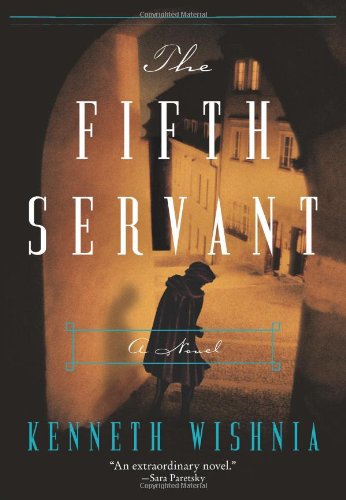The Fifth Servant
Sara Paretsky’s cover blurb gets it exactly right: Kenneth Wishnia’s The Fifth Servant is indeed “an extraordinary novel.” Set in 16th-century Prague, it revolves around the murder of a young Christian girl whose mutilated body is found inside a Jewish merchant’s shop. How different individuals and communities within Prague react to the murder illustrates the tensions within and between Jewish and Christian communities, each struggling with religious “freethinking,” and other challenges to the orthodoxy of the past, as well as with their own foibles and idiosyncrasies and those of their neighbors.
In another’s hands, the resulting novel might end up grim and pedantic, but Wishnia manages to turn the story into something Dickensian in its comic turns, richly drawn cast of characters, and plot twists. Wisecracking newcomer and protagonist Benyamin ben-Akiva struggles to find the evidence that the Jewish merchant is being framed as a means of fanning the ever-present hatred of Jews into open riots. At the same time he is trying to win back his frivolous, estranged wife and break through the suspicions the entrenched Jewish community has about an outsider serving as the new shammes (adminstrator) of one of the synagogues.
His sleuthing takes him from yeshiva to brothel, from palace to graveyard, where he encounters some of the most engaging secondary characters in recent historical fiction—a Christian butcher’s daughter with the soul of a Talmudic scholar, an herbalist fighting charges of witchcraft, bickering yeshiva students, tough guys, tender hearts, complete idiots and fearless heroes. This book is highly recommended not just for those who like a good read, but for serious students of the craft of fiction writing.










